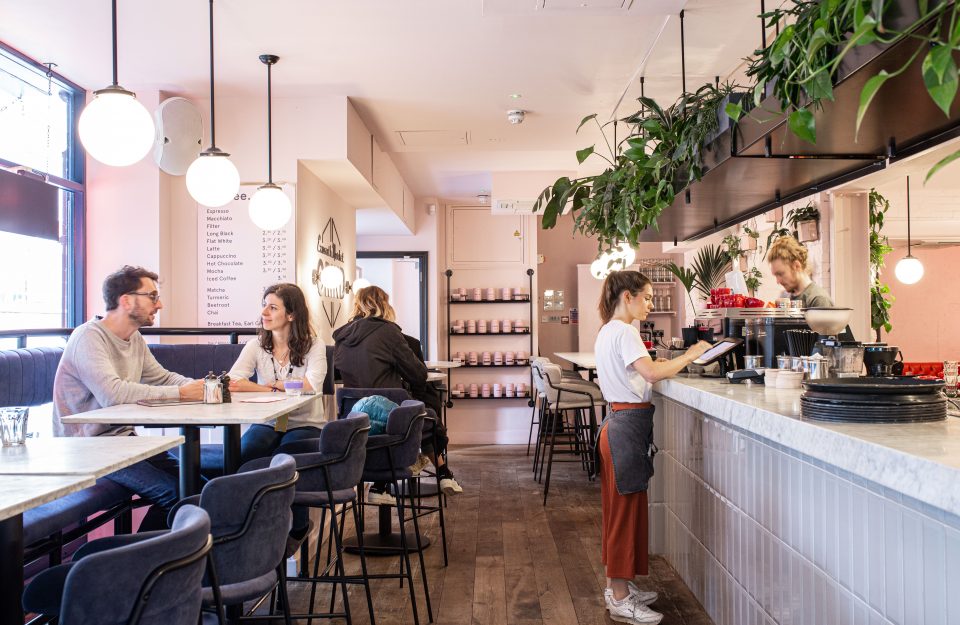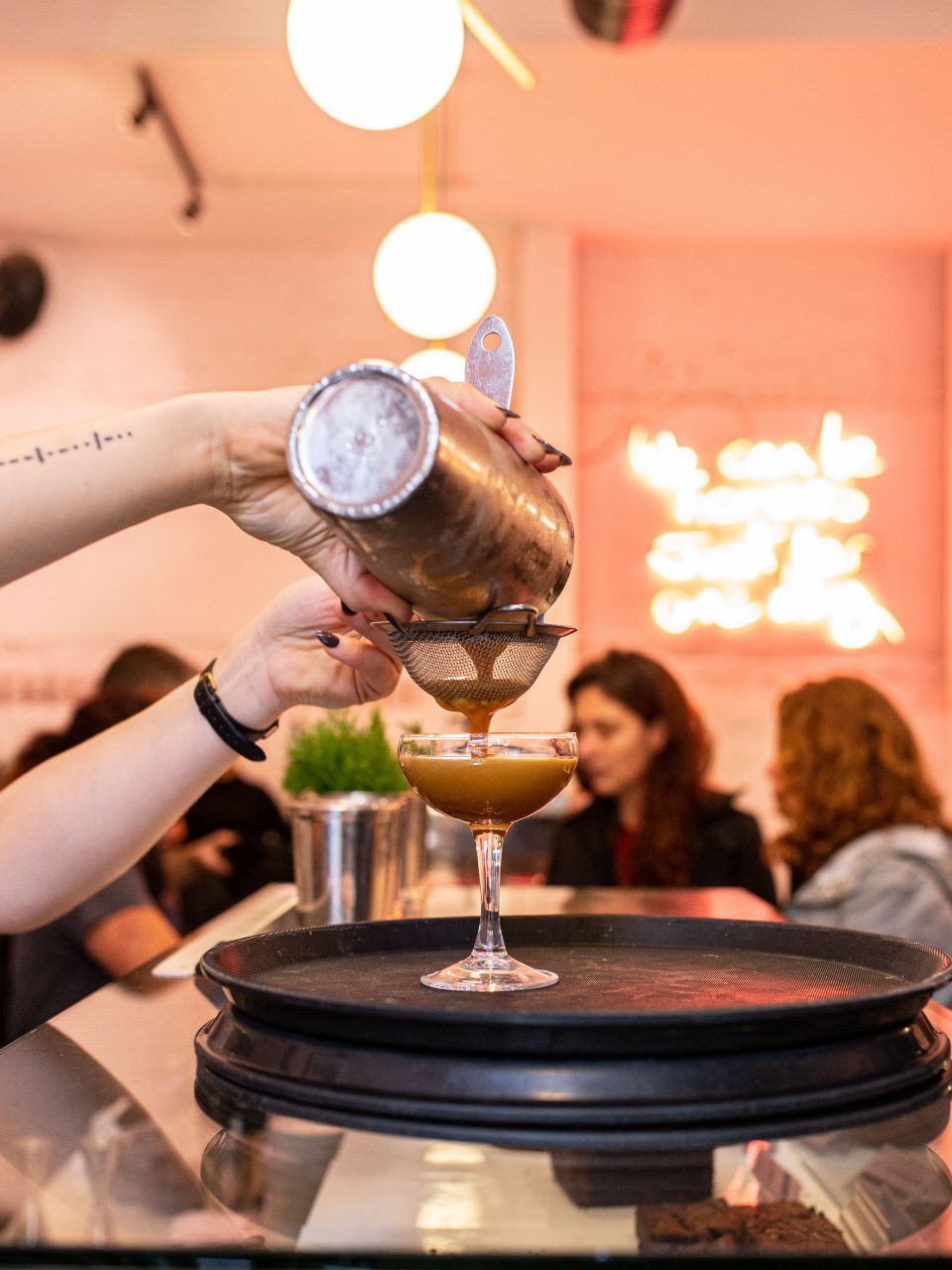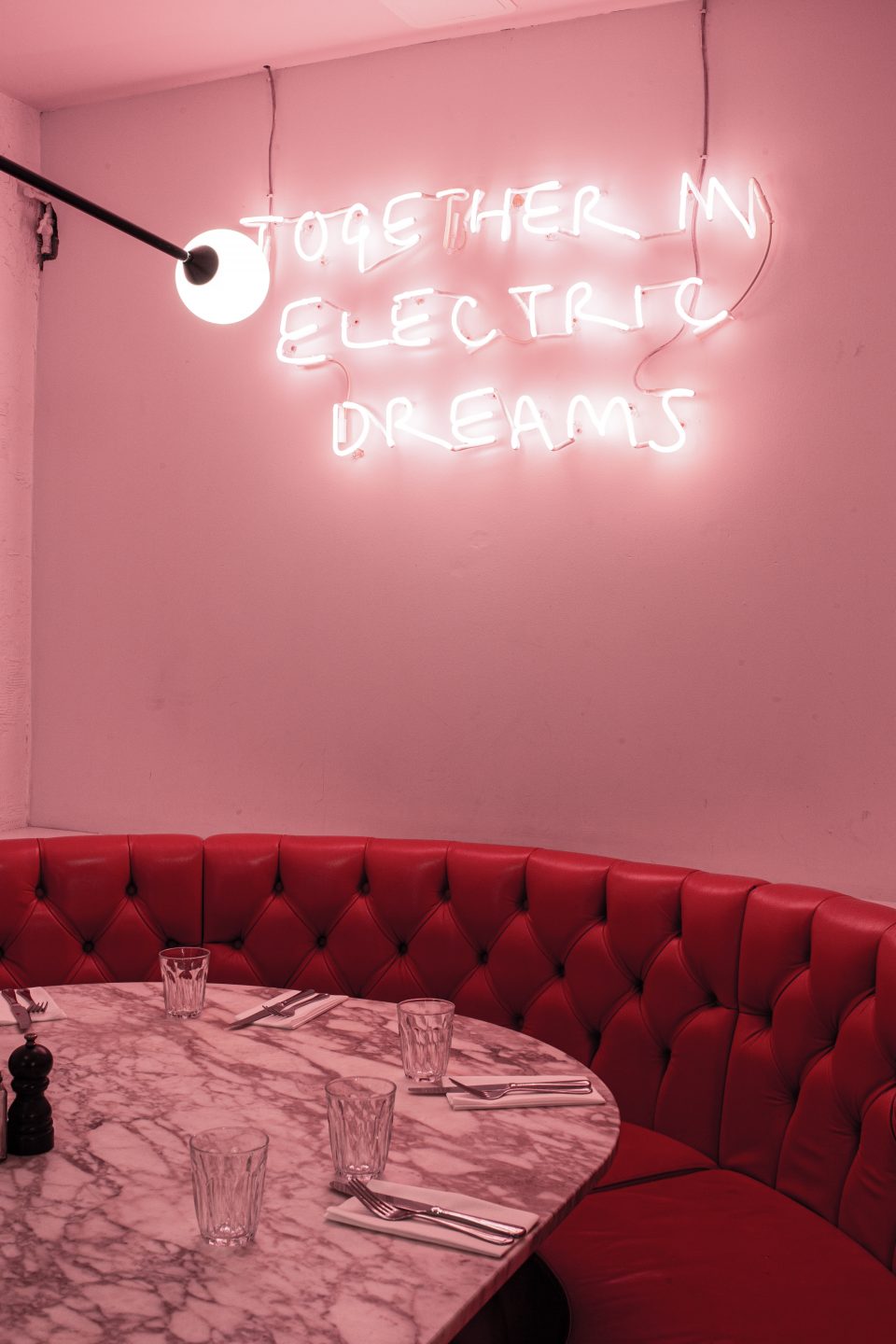Spilling the beans: How coffee chain Grind has carved out its own London niche

Given how busy life in the capital can get, and how hard the people here work, most Londoners must live on coffee. It’s the only plausible explanation for the explosion in coffee shops in recent years. Independent coffee houses are thriving alongside the big brands like Costa and Pret a Manger.
According to research by the London Coffee Festival, the number of UK coffee shops has increased from 10,000 in 2007 to more than 24,000 today. There has even been speculation that coffee shops may outnumber pubs by 2030.
So given all that competition, how can a coffee business carve out a niche in a crowded market? I put that question to David Abrahamovitch, chief executive and co-founder of Grind, London’s hybrid chain of coffee-shop-cum-cocktail-bars, which employs over 300 people and achieved annual sales of £9.4m in 2018.
“It’s easy to post-rationalise what you did with the benefit of hindsight. We just wanted to make somewhere that we thought was cool, that was done how we thought it should be,” he recalls. “We didn’t sit down at the start and say ‘this is the plan’. It was meant to be a one-off, a bit of fun. We never even wrote a business plan.”

I meet Abrahamovitch at Liverpool Street Grind. Its design is modern and chic, with funky music playing over stereos. Even on a cold Tuesday morning, it has plenty of customers, either chatting or working on laptops.
Grind started life in June 2011 (“It feels like a hundred years ago”, Abrahamovitch quips) with the first branch on Old Street Roundabout itself. Since then, it has grown to 11 locations across London — a mix of larger venues that sell lattes in the morning and espresso martinis in the evening, and small stores serving busy commuters near the capital’s train stations. Some of these are company-owned, while others are franchises, and Grind also has a thriving retail operation, selling coffee directly to consumers either online or in supermarkets like Sainsbury’s.
Abrahamovitch’s journey to running a multi-million coffee chain wasn’t straightforward. Before starting the business, he had helped found the legal claims firm InterResolve, while still studying economics at University College London.
“It was a tech business aimed at the insurance and legal sector. It was a small startup, and exciting. We moved offices three times, and went from a team of no one to 100 people. The typical crazy startup journey,” he says.
But then, 10 year ago, his father passed away after contracting prostate cancer. This tragic event caused Abrahamovitch to switch priorities.
“My dad had a business running mobile phone retail stores, which he started in the mid 80s. I’d effectively inherited this mobile phone business that I didn’t want, but one of the buildings was the main one that I’d spent most of my time in and I’d worked in when I was 13. That was on Old Street Roundabout.

“I never considered selling the building, so I thought it made sense for it to be a meeting spot of some kind. That led me to the conclusion that it should be a coffee shop or wine bar, something like that. That was what kicked off the project.”
This coffee shop experiment took off, and by 2014, Abrahamovitch decided to leave the tech business and work full-time on Grind, opening several new locations, as well as the chain’s first restaurant site on London Bridge. I ask him what the biggest challenge was of switching from the tech industry to running a coffee bar.
“The biggest lesson is just how important people are, particularly in hospitality. You see a complete correlation between the quality of the general manager and the performance of a site at all levels, even sales. You’ve got to have a great team, as well as a great recruitment programme and retention scheme.”
How has Grind financed this growth? Crowdfunding. The brand has completed three fundraisers on the Crowdcube platform in the last five years — in 2019 it raised £3.5m from 1786 investors. Abrahamovitch says crowdfunding has enabled the brand to remain independent rather than turn to venture capital or private equity.
“Because of the audience we’ve been able to build — the social audience online, and the physical one in our stores — that’s enabled us to crowdfund, because when you don’t have many shop windows or see many customers it is harder to do that,” he explains.
“We like to make long-term decisions about what’s best for the brand, rather than just have short-term goals like ‘we must open five sites’ or ‘we must open 10 sites this year’. That approach almost has to come with private equity, because those guys need to get in and out and make a return in three to five years. I think we prefer to stay independent and maintain our flexibility.”

Abrahamovitch is also member of YPO, a global network for chief executives with over 28,000 members.
“As an entrepreneur, I’ve seen business leaders shift their thinking towards making a social impact with their business. In a recent survey by YPO, we’ve noticed how 96 per cent of its UK members are committed to making a social cause. That’s a clear and exciting underpinning of what business stands for in today’s world.”
Looking ahead, Abrahamovitch says the chain will expand to 16 locations by April and forecasts it to grow to 30 sites by 2022. It is also planning to branch out beyond London, with a location in Glasgow Central Station and others in the pipeline.
“We’re also tendering on airports with our franchise partners — that includes some European airports. And we’re having early conversations about international joint ventures in key cities,” he says proudly.
So is it more likely that the next Grind will be in Berlin or Brussels than Bognor Regis?
“We’re a very metropolitan brand. We suit New York or Berlin better than regional towns in the UK. Certainly when we look at where our Instagram following comes from or where traffic to our online store comes from, we see a disproportionate amount in those kinds of cities, rather than regionally across the UK.”
Abrahamovitch is clearly ambitious, and bullish about the company’s growth, but it is operating in a challenging environment. I ask him about the downturn in the restaurant sector and how it is affecting Grind.
“We’re at the end of the scale where we’re younger, faster growing, and have less of the problems of the bigger guys. But competition is higher than ever, the cost base is higher than ever, and none of those things show any sign of getting better.”
How Grind will fare in a major downturn remains to be seen. But I save my most important question for last: what’s his favourite coffee?
“Oat flat white. I’ve switched to oat milk for the reduced CO2 mainly.”
Very fitting, for Veganuary.
Sign up to City A.M.’s Midday Update newsletter, delivered to your inbox every lunchtime
Main image credit: Stephanie Sian Smith